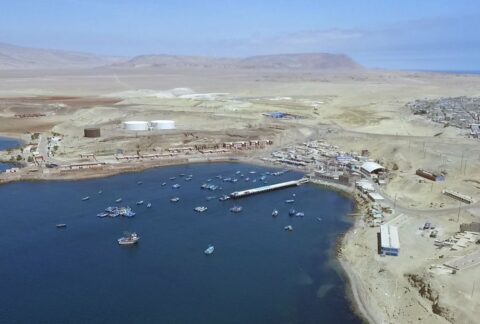Peru’s Ministry of Transport and Communications (MTC) and the Ministry of Housing, Construction and Sanitation (MVCS) have suspended the contracts awarded to construction companies China Tiesiju Civil Engineering Group Co. Ltd., Peru branch (CTCEG); and China Railway Tunnel Group Co. Ltd., Peru branch (CRTG), after identifying irregularities in the administrative processes in which they won public infrastructure bids totaling $240 million, Peruvian daily La República reported.
“The modus operandi of some Chinese companies is to create a consortium with a small national company, used to derive the payment of gifts in favor of former officials,” César Candela, lawyer and director of Peru’s National Construction and Infrastructure Society, told Diálogo on July 12. “During the pandemic, all the right conditions were in place so that only companies with financial backing were awarded [contracts]. As the national bank did not back them […], the only companies that had [money] were the Chinese companies.”
The projects included an $87 million contract with Provías Nacional, the institution that manages Peruvian highways that Chinese company CRTG had won to improve the roadway corridor between Huancavelica and Ayacucho. Another project was a $153 million contract for the drinking water and sewer project in the cities of Piura and Castilla that China-state affiliated CTCEG had won.

“We are taking the bull by the horns to prevent companies of dubious origin from being in charge of the works. We are looking for evidence of any flaw during the process,” MTC Minister Paola Lazarte told Peruvian news agency Agencia Peruana de Noticias. “This decision was taken based on the subsequent audit that the MTC carried out on the contract signed. I want to reaffirm our commitment to carry out works without irregularities or corruption.”
“We deeply regret that, in spite of everything we’ve gone through, mafia practices continue, using protective measures filed in remote courts to force us to sign the contract,” MVCS Minister Hania Pérez de Cuéllar, told daily El Peruano. “We will remain firm in the defense of transparency and integrity in the execution of public projects.”
The behavior identified by the authorities in Peru is that several Chinese companies, linked to each other as subsidiaries, participate in the same bidding processes in several government entities, “as if it were a cartel,” Pérez de Cuéllar said. This is the mechanism they use to secure contracts.
“All the Chinese companies eventually end up being sister [companies] or subsidiaries and have different corporate names. For this project a first bidder was CTCEG, but its parent company Railway No. 10 Construction also participated as a bidder. It did not win, it came in fourth place,” Pérez de Cuéllar told news site Perú 21. “There would be a kind of agreement or in some way a cartel, because they submit bids with different corporate names, but in the end they all end up responding to a parent company, which is the same thing.”
In fact, the Peruvian State Contracting Law and its regulations do not take into consideration the scheme that Chinese companies use to win bids.
“The subsidiaries somehow have autonomy and are an arm of the parent company. But Chinese companies are state-owned, because the concept of private company does not exist there. So I question how is it that a subsidiary or several subsidiaries can participate, if we all know that they are state-owned companies,” Candela said. “But as they are constituted under the framework of the law as subsidiaries, then, several linked to the same parent company participate.”
“All [the companies] are Chinese state-owned. Under that logic only one company could operate,” Pablo Rioja, an attorney for the consortium in which the CTCEG company is a part of told Perú 21. “The state contracting law does not foresee that great detail.”
The Peruvian Congress created a special commission to investigate Chinese companies and entities designated for suspected wrongdoing in tenders of institutions of the Peruvian government.
“The investigation we are carrying out is going to need more time, without a doubt, because we have found very interesting things such as money trails,” Héctor Valer, president of the commission and member of the Somos Perú party, told Peruvian daily Correo. “For example, a high-ranking state official requested a loan of 1 million soles [nearly $281,0000] but paid it back 30 days later.”
Among the situations being questioned is the invitation extended by Mexican information company DLP Group, specialized in the digital ecosystem, which works for Chinese telecommunications companies such as Huawei. This company invited congressmen from the Peru Libre and Acción Popular parties to travel to China with all expenses paid to “participate in a technology fair,” Mexican news services NV Noticias reported. The activities scheduled for the congressmen were scheduled to end July 2.
The Code of Parliamentary Ethics prohibits representatives of the people from accepting such invitations. However, on July 5 Argentine news site Infobae reported that the congressmen had not yet returned to Peru and were in Holland.









